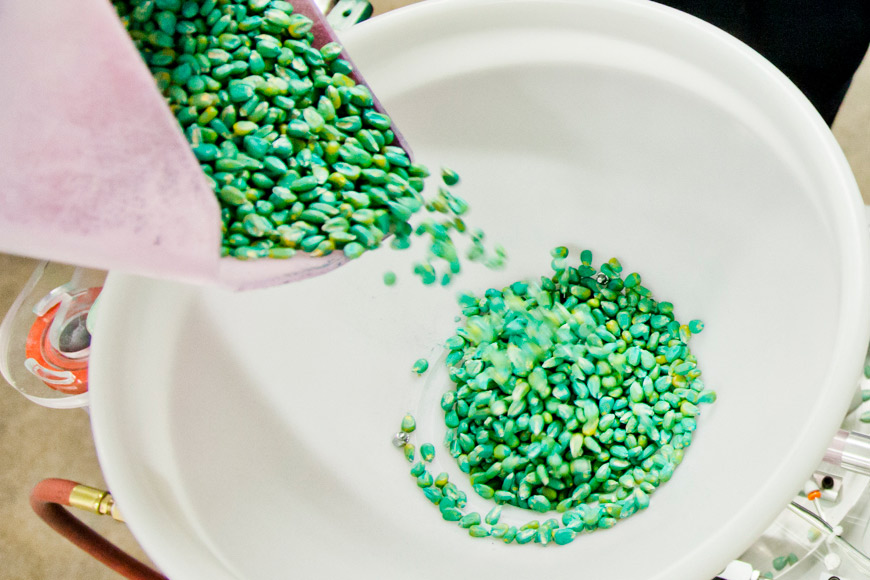Validate Your Seed and Seed Treatment Choices

Your local agronomist can help you navigate the data for your region and field characteristics. Here is are some things to look for and what WinField United can offer when you’re examining thatinformation.
Be sure the data is legit.
If data is not backed by strong replication and analytics, think twice about trusting it. Be sure you know how many times and under what conditions a particular hybrid or variety has been field-tested.
Beyond that, consider the source of your data. Data coming out of the field is only as good as the design and execution of the trial it came from. Some attributes of sound field trials include:
- Protocols for the experimental design and trial layout.
- Randomization of entries within a trial.
- Uniform site placement to reduce variability.
- Vetting the quality of the plot throughout the season.
- Statistical analysis of results and critical data review.
Our wide network of Answer Plot® testing locations and rigorous trial protocols help ensure that our data is consistent, repeatable and reliable. In addition to the attributes above, the Answer Plot program uses the latest georeferencing field technology to help eliminate human error in our trials.
Choose seed that’s best suited for your acres. Then see how it did.
Once you know the data you’re looking at is relevant to your fields, work with your agronomist to leverage data-backed tools such as the WinField United Characterization Charts (CHT Tool) and the R7® Performance Mapper to choose the optimal seed for your fields and determine at the end of the season how it performed.
- The CHT Tool uses up to three years’ worth of Answer Plot data to compare CROPLAN® seed products and WinField United partnered seed brands to seed from other major companies. Comparisons are based on soil type, crop rotation, plant population, management practices and other factors.
- The Performance Mapper helps you understand where hybrids and varieties perform best and can help you capitalize on the genetic potential of your seed. It lets you see yield results by location and includes data from Answer Plot sites, as well as on-farm insight trials.
Plant treated seed that’s backed by data.
An effective seed treatment can help your corn and soybean plants get off to a quick start and promote even emergence. But first you have to pick the right seed for your fields. WinField United offers seed treatments for corn and soybean seed that have been tested and found to deliver excellent performance.
- For soybeans: Warden® CX seed treatment delivers protection from early-season diseases and insect threats. Compared with an untreated control group, soybean seed treated with Warden CX garnered a 3.4-bushel-per-acre average positive response. (Source: 2015 data from 30 Answer Plot locations nationwide.)
- For corn: Results from 2017 and 2018 Answer Plot trials indicate a positive effect on yield from Fortivent™ Zn seed treatment. Hybrids with 90- to 110-day maturities planted with Fortivent Zn, which is exclusive to CROPLAN, saw a 4.8-bushel-per-acre increase over untreated seed across 41 trial locations nationwide. This new zinc seed treatment helps boostand promote uniform emergence to optimize yield potential.
To find out more about accessing the data you need to help make decisions about seed and seed treatment purchases, talk with your agronomist or your local trusted advisor.
© 2019 WinField United. Answer Plot®, CROPLAN®, Fortivent™, R7®, Warden®and WinField® are trademarks of Winfield United.

